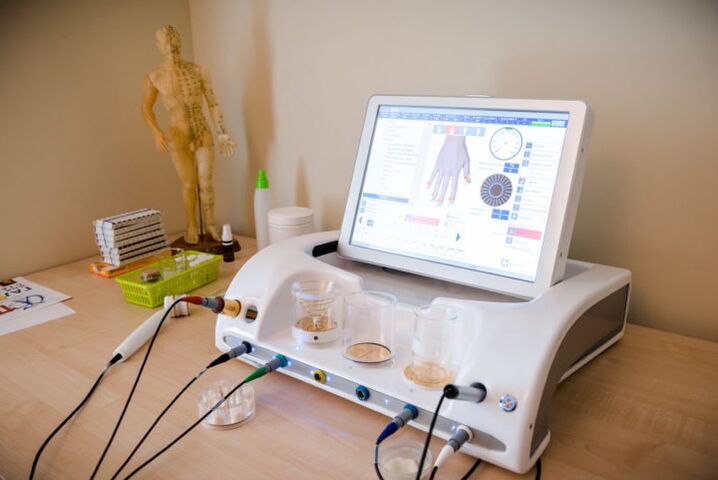
The question of how to identify parasites in the human body is very worrying, as these are organisms that undergo a parasitic lifestyle, their developmental cycle assumes permanent or temporary existence in the human body. This can be done according to specific symptoms. Although different parasites manifest themselves in different ways, there are some common symptoms that can cause a person to think that they do not have a very pleasant roommate. Second, it is possible to determine the presence of parasites in the body using special diagnostics. Timely diagnosis allows you to prevent serious consequences and prevent diseases arising from the negative influence of worms.
Signs of parasites in the body
How do you know if there are parasites in the body? You need to listen carefully to your body and the processes that take place in it. In the early stages of parasitic invasion, the symptoms may not be obvious enough, however, someone who cares about their health will notice pathological phenomena and be vigilant:
- Allergic reactions. One of the signs of parasitic attacks on the human body is allergies. In response to the adverse effects of parasites, the human body begins to produce more eosinophils - protective cells. They can cause allergic reactions. Instead, the parasite releases immunoglobulin E into its host blood, which contributes to the increase in allergies. The strongest parasite is the ringworm allergen, it causes reactions in the body (skin rash), in the digestive tract, in the lungs and in the conjunctiva.
- Discomfort in the gastrointestinal tract. Parasites, which are localized in the small intestine, provoke inflammatory processes in them, resulting in impaired normal bowel function. Nutrients are absorbed worse, undigested fat enters the rectum, while a person experiences cramps, and diarrhea alternates with constipation. In addition, patients experience pain in the epigastric region, in the left or right hypochondrium, nausea and heartburn. Appetite is lost, weight is lost. If there is a disturbance in the work of the biliary organs and digestive tract, acne, pigmentation may appear on the skin, the skin becomes dry and fluffy, the skin is dull.
- Some worms, due to their size or number, are able to block the bile ducts, as a result of whichgeneral bile ducts are blocked, bile outflow worsens or stops, in humans it is indicated in obstructive jaundice. Because toxic substances are mainly released through the skin, problems with the gallbladder or liver affect the condition of the skin. Age spots, acne appear, skin turns yellow.
- Stool disordersmanifest as diarrhea and constipation. Constipation occurs when the intestinal lumen is blocked by parasites. For diarrhea, it is provoked by substances such as prostaglandins, which cause a lack of chloride and sodium in the body.
- Due to prolonged diarrhea, the body loses water, which causesdysbiosis.
- Parasites severely damage the immune system, immunoglobulins A are produced in smaller amounts and the body becomes susceptible to viral and infectious diseases.
- Because parasites migrate throughout the body, they can settle anywhere, including muscles and joint fluid. As a result of their intervention on muscles and joints, an inflammatory process occurs that causes pain. Therefore, a person suffers fromjoint pain and muscle aches.
- Due to digestive disorders and nutrient absorption by worms, a person suffers from malnutrition and decreased blood sugar levels, resulting in weight loss. Pathogenic organisms absorb minerals and trace elements necessary for a person, and thereforeanemia and premature aging develop.
- Anxiety and nervous state give rise to toxic waste products from parasites, it affects the nervous system and causes various disorders on its part.Insomniain humans occurs because at night the body tries more to get rid of harmful organisms.
- In some cases, the large accumulation of helminthic infections canprovoke oncological processesin the host body, a very high risk arises when parasites are localized in certain organs - lungs, liver, pancreas, etc. .

Someone who is attentive will definitely notice the symptoms described. He must be examined for his own parasite or see a doctor until he can send it for a diagnosis.
Diagnostic measures
The presence of parasites in the human body can be determined by using several diagnostic procedures that can not only detect the presence of parasites with great accuracy, but also determine the type, quantity, localization and dangers it poses to human health.
Until recently, the presence of parasites was determined only on the basis of fecal analysis. Although this is the simplest research method, its accuracy is not very high. The fact is that parasites do not lay eggs every day, and it is impossible to guess when this will actually happen. Therefore, for an accurate diagnosis, you need to donate stool 10 times a month. It is very inappropriate for people to work and study. But now there are more advanced diagnostic methods:
The fact is that parasites do not lay eggs every day, and it is impossible to guess when this will actually happen. Therefore, for an accurate diagnosis, you need to donate stool 10 times a month. It is very inappropriate for people to work and study. But now there are more advanced diagnostic methods:
- X-rays, endoscopy and endobiopsydetect parasites on internal organs (lungs, bile, liver, etc. ).
- PCR (polymerase chain reaction). Using samples taken in the form of saliva, secretion or blood samples, parasitic DNA is determined. If a blood test shows the presence of a parasite, then a PCR test can determine whether the parasite is one type or another.
- ELISA (enzyme-related immunosorbent test). It detects antigens and immunoglobulins. The accuracy of such a diagnosis is 90%, and the type of parasite, its number, and overall dynamics are tracked.
- Diagnosis bioresonans. The patient's body is affected by electromagnetic oscillations, while only the presence of pathogenic organisms can be examined, but it is impossible to determine its species.
Conclusions and conclusions
If you suspect you have a parasite, or just want to be tested based on this score, you should see a doctor - a parasitologist or infectious disease, he or she will tell you how to be tested and, if the results are positive, prescribe the right treatment. Self-care is strongly discouraged. First, antiparasitic drugs have a large number of contraindications, as they are highly toxic. Therefore, they can only be taken after a doctor's prescription. Only a doctor can choose the right dose to destroy parasites and cause some harm to the human body.
Second, some parasites must be removed from the body under the supervision of a doctor. When a drug acts on a parasite, it will die, but before that, it releases toxins into its host blood, which can cause anaphylactic shock in a person.
Third, it is ineffective to use traditional medicine for parasites. They only serve as a prevention, or if the infection has just occurred, and the larvae have not yet matured into adults, in all other cases, do not need to be treated with pumpkin seeds, green beans, wormwood, and so on.
























